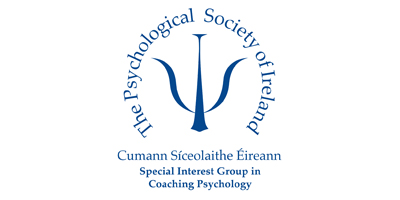Stressed? Mind racing? Need a creative solution?
The following question is essential if you find yourself stressed, stuck in an endless loop of worry. Or you find yourself getting anxious more generally. It’s also essential if you find yourself stuck in a problem that needs a creative or innovative solution. If this is you – I beg you to answer the following question:
What did I do to relax today?
Stress Solutions
This question about relaxation is based on a huge amount of scientific research on stress. Stress is a phenomenon that affects us on many different levels, and because of this, we can approach stress from a number of different angles. We can go into problem-solving mode and try and remove the problem or change the situation that’s stressing us out. Or we can go at it ‘psychologically’ by supporting ourselves emotionally or changing or thinking. Perhaps we need to accept that not everything needs to be perfect, or that we can cope with problems that life throws at us. But an important angle to approach stress from, especially when we are stressed long-term or chronically stressed, is from the physiological angle.
The Impact of Stress
This is because, on a biological or physiological level, chronic stress damages us in many ways. For example, when we are stressed our heart rate increases. This means we have more energy ready to deal with the threat. Over time this can thicken our arteries as we adapt to cope with the increased blood pressure, which in turn can lead to heart disease. Stress also ‘turns down’ our immune systems, in order to use bodily resources to deal with what we perceive as more immediate threats. This is why stress is linked with everything from cancer to autoimmune dysfunction. But what a lot of people don’t know about is the link between stress and our brains.
Chronic stress is associated with mental illness, anxiety, and depression. Overproduction of the hormone cortisol during chronic stress means it builds up in our system and leads to changes in brain regions associated with anxiety and depression. This makes intuitive sense. If we perceive things as always being stressful over a long period of time, we are going to become anxious or lose hope – which is a major symptom of depression. Another way of thinking about this is that stress is cumulative.
A quick, enjoyable, free and scientifically validated solution?
It appears that one of the best ways to reduce this damage is to spend at least 30 minutes per day in some form of deep relaxation. When we are deeply relaxed our heart rate slows, our muscles relax, and the body releases endorphins which help to undo the negative effect of the stress hormone cortisol. There are lots of deep relaxation techniques. Yoga, meditation visualization, and progressive muscle relaxation are some of the scientifically validated ones. I’ll link to a good book on the topic, and some other resources below. Relaxing can also really help our problem-solving in the short term.
Stress and your problem solving ability
When we’re stressed our thinking tends to narrow, and we tend to focus only on the problem. Think of a time when you were really stressed about something. Maybe you couldn’t think about anything else. Your mind keeps worrying, goes and loops, over and over, fixating on the problem. You might be distracted to the point where you’re forgetful, or you’re clumsy. this is an issue. Our fixation on the problem means we often cannot see the wider picture and thus possible solutions.
About 10 years ago I was in university. It was during a particularly intense period leading up to Christmas, and I was behind on getting a final term paper in. I had spent too much time on my other papers, to the point that three days before it was due, I still didn’t know what i was going to write this final paper on. I was very stressed. If I didn’t get this paper in, I would fail the year. In fact, I was so stressed that I couldn’t think straight. Eventually, based on advice on one of the book below, I tried a relaxation technique called progressive muscle relaxation. This is where you tense and relax various muscle groups in order to go into a state of deep relaxation. After about 30 minutes the muscles in my upper back, which have been incredibly tense, finally relaxed. About 30 minutes after that, my more relaxed mind came up with the solution that had been staring me in the face the whole time. I wrote the essay on stress.
So the next time you’re worrying uncontrollably, or you’re feeling anxious, or you’re really stressed and can’t solve a problem, ask yourself “What did I do to relax today?”
I hope you find this useful.
Jayson
Thumbnail photo by Matthew Henry on Unsplash





